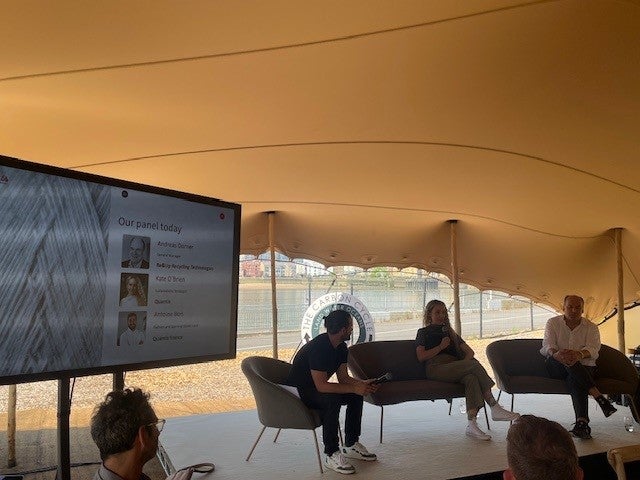EU Commission president Ursula von der Leyen made the announcement as part of the political guidelines rollout for the next European Commission from 2024-29.
In her presentation, von der Leyen said Europe’s competitiveness “is hamstrung by its lower productivity compared to its direct global competitors.”
“There are too many structural brakes on our competitiveness. Our companies operate in a turbulent world with more unfair competition, higher energy prices, skills and labour shortages and difficulties in accessing the capital they need.”
She pointed out the problems associated with an over-reliance on supply chains based in China and Russia and said the world is in a race that will dictate who will be the first to climate neutrality and developing tech to shape the global economy for decades to come.
“Europe cannot afford to fall behind and lose its competitive edge in this race, nor can it leave any strategic vulnerabilities exposed.
We have a lot of assets that give us a competitive edge, from world-class researchers and universities, to thriving small businesses and a stable environment based on the rule of law and a level playing field.
But given the scale of the challenges and opportunities, we now need to go much faster and further to ensure competitiveness, prosperity and fairness.
“We will start by focusing on the implementation and enforcement of the digital laws adopted during the last mandate. Tech giants must assume responsibility for their enormous systemic power in our society and economy. We have begun the active enforcement of the Digital Services Act and the Digital Markets Act. We will ramp up and intensify our enforcement in the coming mandate,” she said.
“We will support this by tackling challenges with e-commerce platforms to ensure consumers and businesses benefit from a level playing field based on effective customs, tax and safety controls and sustainability standards.”
The ultimate goal, she noted, is building a true digital single market which she said would be a “gamechanger” for the region’s productivity and competitiveness.
The EU Commission plans to step up investment in the next wave of frontier technologies, in particular supercomputing, semiconductors, the Internet of Things, genomics, quantum computing, space tech and beyond.
It has its eye on becoming a global leader in AI innovation with the proposal to set up a European AI Research Council to pool all resources.
Von der Leyen also noted Europe’s need to exploit the untapped potential of data.
“Access to data is not only a major driver for competitiveness, accounting for almost 4% of EU GDP, but also essential for productivity and societal innovations, from personalised medicine to energy savings.”
But she said too many companies in Europe are struggling to get access to the data they need. For this reason, the EU Commission is proposing a European Data Union Strategy. This will draw on existing data rules to ensure a simplified, clear and coherent legal framework for businesses and administrations to share data seamlessly and at scale while respecting high privacy and security standards.















